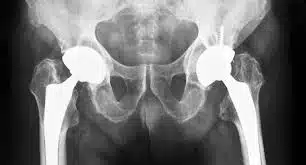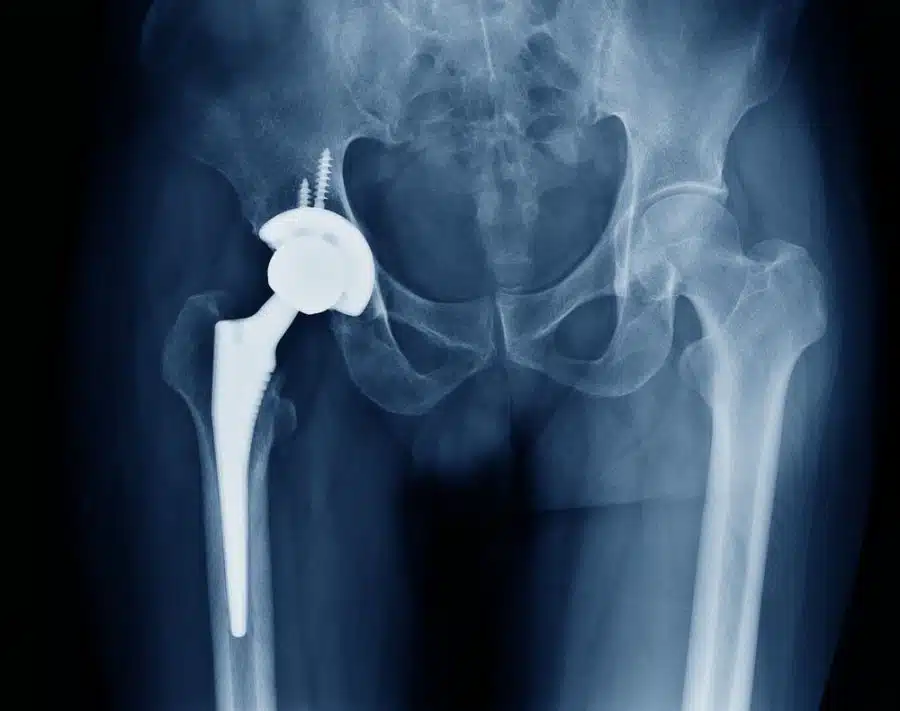You know that the hip joint is one of the largest joints in the body. When this joint is in trouble, the problem can have a serious impact on your whole body and ability to perform normal activities. When hip joint is severely damaged by arthritis or other potential problems, hip replacement surgery may be recommended. In hip replacement surgery, the orthopedic surgeon removes cartilage and bone from the hip joint and replaces it with artificial limbs. Surgery can be associated with decreased long-term pelvic pain and increased mobility. Hip replacement surgery can provide relief to the patient’s pain, improve joint function, and restore normal walking and other movements related to this joint.
Hip replacement surgery is a procedure during which old and damaged hip joints are replaced with an artificial one (known as a prosthesis). Hip replacement is also known as total hip arthroplasty. Arthritis in the hip area can have different types, including:
- Traumatic arthritis: Arthritis caused by injury is classified in this group. This can also damage the hip’s cartilage.
- Rheumatoid arthritis: This type of arthritis causes inflammation of the synovial lining in the joints. This can increases the synovial fluid and leads to severe stiffness and pain.
- Osteoarthritis: This is a degenerative type of joint disease that mostly affected old and middle age people. Osteoarthritis can cause a breakdown in the joint cartilage and adjacent bones of hips.
When do patients need total hip replacement surgery?
People over 50 or more are the most vulnerable group to damages and diseases in the hip area. Those who face symptoms as below will be considered as a proper candidate for hip replacement surgery:
- Advanced arthritis or other similar complications
- Significant stiffness in the hip area
- Severe pain which affects everyday activities of the patient
- Pain that cannot be controlled by canes, walkers, or anti-inflammatory medications.
Does my hip joint need hip replacement surgery?
Arthritis is one of the most common motives for hip replacement surgery. Your doctor may also prescribe you hip replacement surgery in the following cases:
- Rheumatoid arthritis (a condition that causes pain, stiffness, and arthritis)
- Bone necrosis (a disease that causes bone to die in the joints)
- Hip joint Injury
- Bone tumor that breaks the hip joint.
Your specialist doctor may first prescribe other treatments for you, including:
- Use auxiliary tools like a cane while walking
- Use an exercise program
- Physiotherapy
- Taking medication

Who are the suitable candidates for hip replacement surgery?
Because of various reasons, the hip joint can be severely damaged in the pelvis area, the most common reasons are:
- When the thigh joint is ruptured and it has arthritis and damage
- Weak hip and acetabular fractures
- Necrosis and femur damage due to poor blood supply
- Hip damage due to rheumatic disease
- When the hip joint has congenital dislocation and breaks down
In these cases, if the patient’s pain is less severe, it can be reduced by taking painkillers and anti-inflammatory drugs, and if the pain is severe, total hip replacement surgery can relieve the pain.
What is the process of hip replacement?
The general outline of a hip replacement surgery is to remove the damaged hip and replace it with prosthesis. The hip prosthesis is usually made up of a stem that connects the pelvic bone and thigh bone. It also consists of a cup that will be inserted into the hip joint’s socket. The cup and stem are made of metals (sometimes plastic or ceramic), while the head joint is made of ceramic. Moreover, hip prostheses have two different categories: cemented and non-cemented prosthesis. A non-cemented prosthesis attached to the bone with a special surface while the cemented one will be attached using surgical cement. In non-cement prosthesis, one side enters the femoral bone canal and other side fixes into pelvic bone. Sometimes surgeons prefer to combine these two types for replacing a hip.
How is total hip replacement surgery performed?
In total hip replacement surgery, the surgeon removes the damaged bone marrow and replaces it with a metal sphere. The artificial hip joint matches two bones together. At the top is the acetabular cavity, which is a part of the pelvis. This cavity is approximately a hemisphere. Inside the cavity of the acetabulum is the femoral head.

What is the success rate of hip replacement surgery?
Fortunately, the success rate of hip replacement surgery is higher than 95 percent. This shows that most of the patients will be relieved from hip pain after hip replacement surgery. This success rate, though decreases with time gradually. While, after ten years from the hip replacement surgery, the success rate is 90-95 percent, it decreases to 80-85 percent 20 years after the surgery. In the case of implant get loosen or tears, the surgeon will consider a new hip replacement.
What are the possible risks of hip replacement surgery?
Usually, prior to the hip replacement surgery, the possibility of some risks will be discussed with the patient. These risks are as such:
- Dislocation of Hip
- Blood clots or emboli in the pelvis and leg areas
- Infections in operation site
However, depending on the health condition of each patient, other risks may occur. It is better to discuss further concerns with TebMedTourism team prior to the surgery.
What are the post-operation instructions for hip replacement surgery?
The surgical area should be kept dry and clean. This is particularly important after leaving the hospital. Other post-operation steps depend on the type of surgery the patient has undergone; therefore, instructions will be issued by the doctor in charge.













